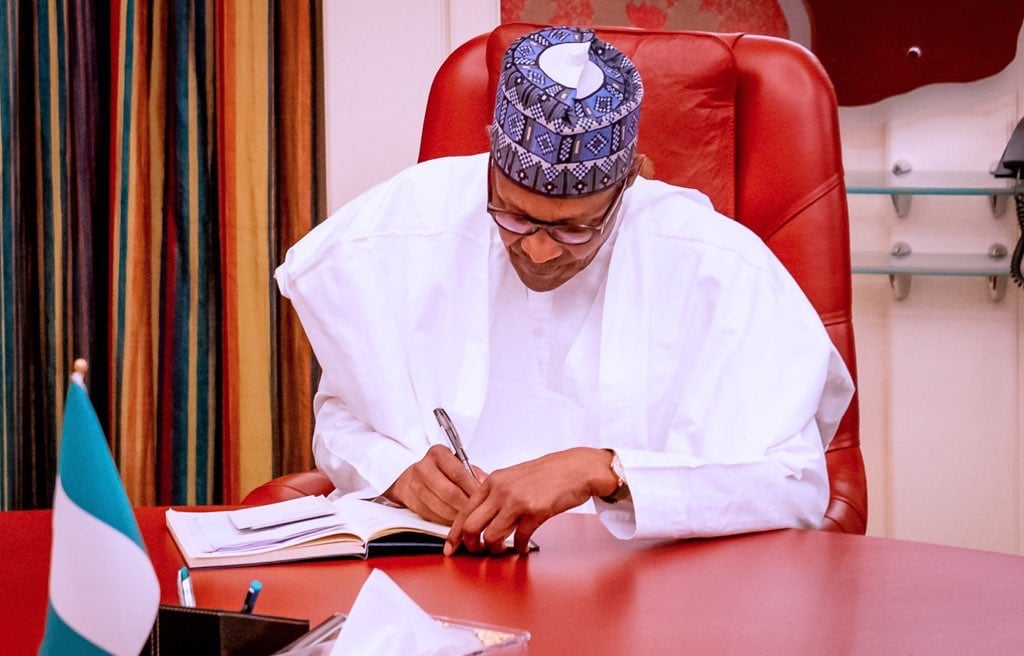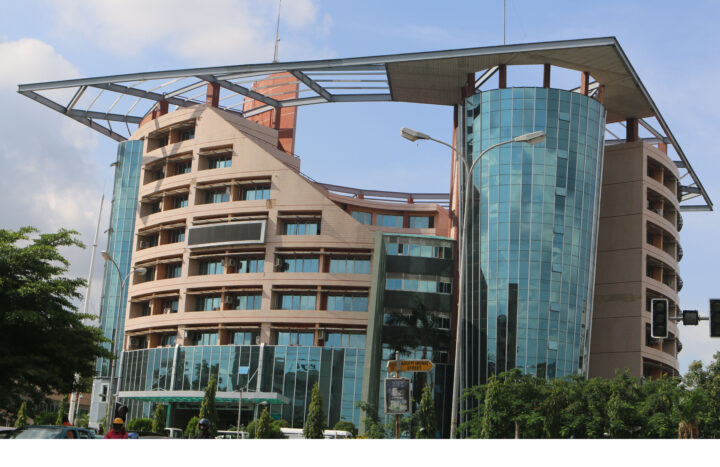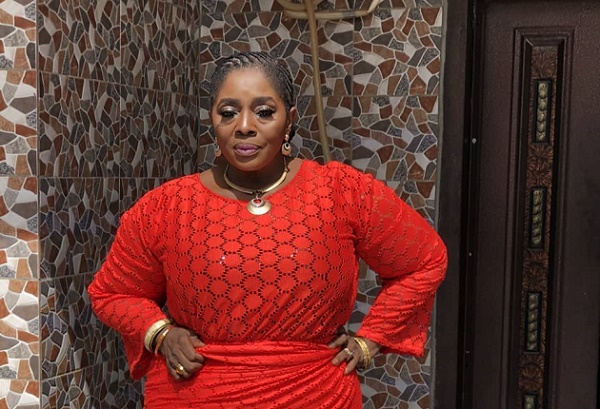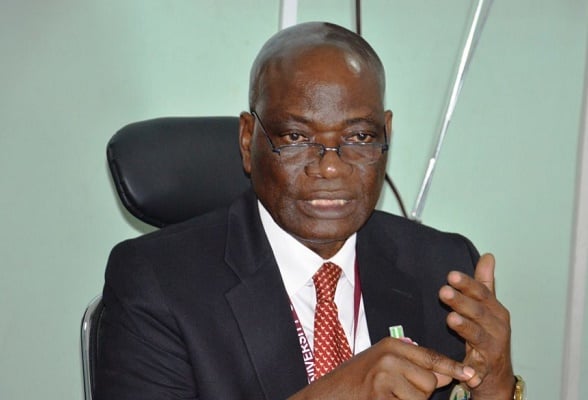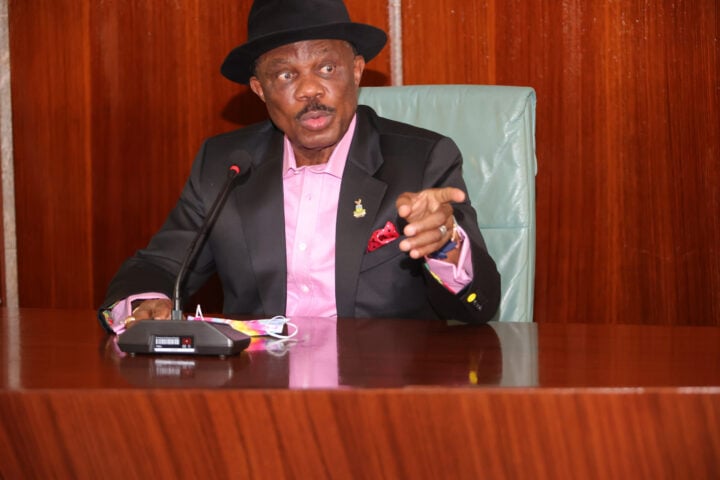The national assembly, on Friday, transmitted the electoral act amendment bill to President Muhammadu Buhari for assent.
The development came days after the senate and the house of representatives approved the conference committee report on the bill.
The upper and lower legislative chambers passed different versions of the bill in July and this led to the setting up of a conference committee.
The electoral act amendment bill has been a subject of public debate ever since it was reintroduced in the ninth assembly.
Advertisement
Arguably, the most controversial clauses in the bill are the electronic transmission of election results and the mode of primaries for political parties.
SENATE BOWS TO PRESSURE ON ELECTRONIC TRANSMISSION OF ELECTION RESULTS
In July, when both chambers passed the bill, they adopted different versions on the issue of electronic transmission of election results.
Advertisement
While the green chamber voted for the Independent National Electoral Commission (INEC) to transmit election results electronically, the red chamber empowered the Nigerian Communications Commission (NCC) to decide on e-transmission.
The provision sparked outrage, with many Nigerians calling on the red chamber to follow the example of the house of representatives which adopted the use of technology “where practicable”.
However, after much pressure from Nigerians including civil society organisations (CSOs), the senate reconsidered its stance on the clause and empowered the INEC to determine the best mode to transmit election results.
DIRECT PRIMARIES FOR POLITICAL PARTIES
Advertisement
While the debate on the electronic transmission of election results occupied the centre stage, not much attention was given to the clause on the mode of the primary election for political parties.
In July, when the lawmakers in the green chamber were considering the clause by clause voting of the bill in the committee of the whole, Femi Gbajabiamila, speaker of the house, moved for an amendment to introduce direct primaries for political parties — the clause was voted and adopted.
The matter drew strong opposition when the senate in October joined the lower chamber and approved that all political parties must use the direct primary mode in picking their candidates. This was subsequently adopted by the conference committee on the bill.
APC, PDP GOVERNORS KICK AGAINST DIRECT PRIMARY
Advertisement
The decision to adopt direct primaries for political parties has elicited varied reactions, with stakeholders including the Peoples Democratic Party (PDP) and some All Progressives Congress (APC) governors kicking against it.
The opposition party described the approval of direct primaries for political parties as a “plot to introduce anarchy during internal party elections”.
Advertisement
The PDP said the approval of direct primaries is a “retrogressive provision that seeks to wipe off all the gains achieved in our electoral practice since 1999”.
“The PDP holds that the provision is aimed at increasing the costs of nomination procedures thereby surrendering the processes to money bags against the wishes and aspiration of Nigerians,” the opposition party said.
Advertisement
But defending why he pushed for direct primary in the bill, Gbajabiamila said it will give youths a fair chance to vie for government positions.
“Our position in the ninth house of representatives is that everyone must have equal opportunities to participate in governance and the democratic process,” he said.
Advertisement
“Our young people must have a seat at the high table and we must create the enabling environment for them to be in leadership such that a young man with bold ideas can come out to vie for any position, be it legislator, governor or any other office. That can only be achieved through direct primaries, which will give a fair chance to the youth of this country to be involved in governance.”
BUHARI PROMISED TO GIVE NIGERIANS A LEGACY OF FREE, FAIR ELECTIONS
The electoral bill currently on the table of Buhari will test his commitment to giving Nigerians a free, fair and credible election.
In January 2019, while inaugurating the APC presidential campaign council in Abuja, Buhari said he will leave a legacy of credible elections in Nigeria, adding that it is the foundation of political stability and peace in any nation.
“We have insisted that votes must count and have maintained a policy of non-interference in elections,” he said.
“INEC has so far since 2015, conducted fair and credible elections in 195 constituencies nationwide, which have been attested nationwide to be qualitatively better than previous elections.
“Let me reiterate my commitment to free and fair elections. If there is one legacy I want to leave is the enthronement of democracy as a system of government. And for democracy to be enthroned, elections must be free and fair.
“That means citizens have a right to vote for candidates of their choice without intimidation in any form. I have warned INEC and security agencies to that effect.
“We will keep insisting that votes must count. Our campaigns will be anchored on our performance in the last four years.”
WILL BUHARI SIGN ELECTORAL BILL INTO LAW?
There are fears that the opposition to the direct primary for political parties by some governors and APC chieftains may influence Buhari’s decision on the bill and it may suffer the same fate as it did in the last assembly.
Efforts to get the amendment act signed into law by the eighth national assembly under the leadership of Bukola Saraki was futile as President Muhammadu Buhari declined his assent — for three consecutive times.
His first rejection was in March 2018 where he said the proposed law would usurp the constitutional powers of INEC to decide on election matters.
In September 2018, Buhari turned down the bill for the second time, asking the national assembly to revise some clauses.
In December when the bill was rejected for the third time, the president said signing it into law could “create uncertainty and confusion” in the forthcoming 2019 elections.
EXPERT SAYS NATIONAL ASSEMBLY CAN OVERRIDE BUHARI
Henry Kelechukwu Eni-Otu, a human rights lawyer, told TheCable that the national assembly is empowered by the constitution to override the president in the event that he declines assent to the electoral act amendment bill.
Eni-Otu added that the bill should be passed into law for the interest of Nigerians.
Add a comment
